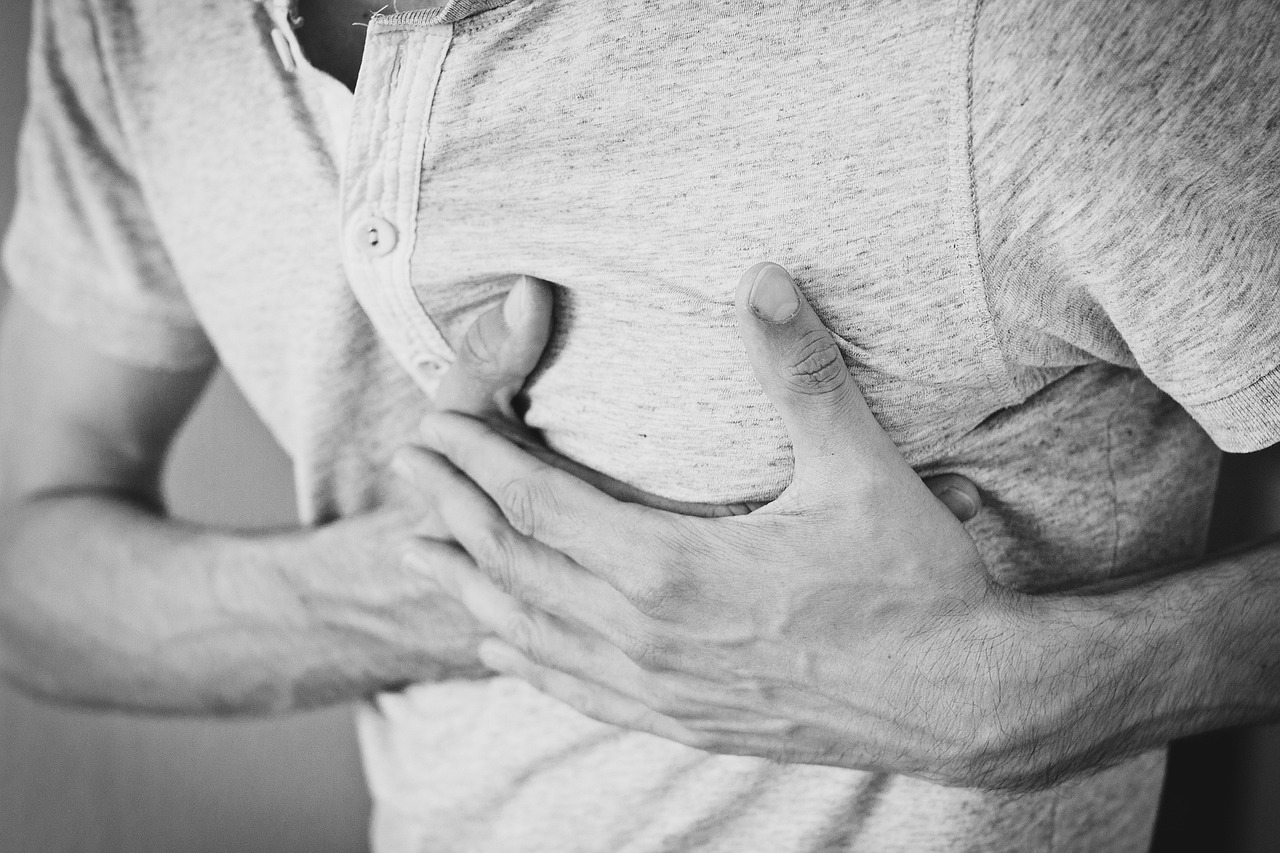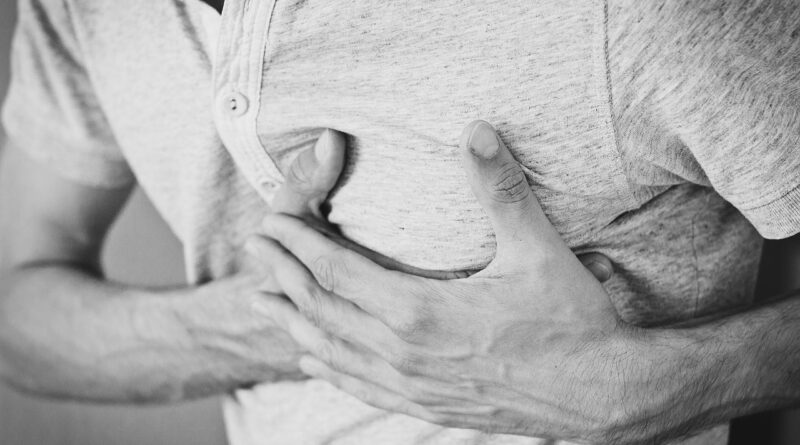The Silent Killer: How to Recognize the Early Signs of a Heart Attack and Save Your Life!
In this article, we will discuss a topic of utmost importance – recognizing the early signs of a heart attack. Often referred to as the silent killer, heart attacks can strike unexpectedly and have serious consequences if not treated promptly.
By understanding the warning signs and taking immediate action, you can potentially save your life or that of a loved one. This article aims to provide you with comprehensive knowledge about heart attacks and equip you with the tools to identify the symptoms and act accordingly.
What is a Heart Attack?

Before delving into the early signs of a heart attack, it is important to have a clear understanding of what a heart attack is. A heart attack, also known as myocardial infarction, occurs when the blood flow to a section of the heart muscle becomes blocked. This blockage can be due to a blood clot or a buildup of plaque in the coronary arteries, which supply oxygen-rich blood to the heart.
Early Signs and Symptoms of a Heart Attack
- Chest Discomfort: One of the most common early signs of a heart attack is chest discomfort. The feeling is often described as a tightness, pressure, squeezing, or heaviness in the chest. The discomfort can be intermittent or persistent, lasting for several minutes.
- Upper Body Discomfort: In addition to chest discomfort, a heart attack may cause discomfort in other areas of the upper body. This may involve pain or discomfort in the arms, back, neck, jaw, or stomach. It is important to note that these symptoms can occur in isolation or along with chest discomfort.
- Shortness of Breath: Feeling breathless or experiencing difficulty in catching your breath can be another early sign of a heart attack. Shortness of breath may occur before or along with chest discomfort and can range from mild to severe.
- Fatigue: Unexplained fatigue or a feeling of extreme tiredness can be an early indicator of a heart attack. This fatigue may occur even with minimal physical exertion or when you are at rest.
- Sweating: Excessive sweating, often accompanied by cold and clammy skin, can be a warning sign of a heart attack. The sweating may not be related to physical activity or hot weather and may feel different from regular sweating.
- Nausea and Dizziness: Some individuals may experience nausea, vomiting, or lightheadedness leading up to or during a heart attack. These symptoms can be mistaken for indigestion or other gastrointestinal issues.
- Anxiety: A sense of impending doom, anxiety, or a feeling that something is not right can occur before or during a heart attack. Some people may describe a feeling of extreme unease or fear.
Understanding Heart Attacks
A heart attack takes place when the flow of blood to the heart is obstructed, typically due to the presence of a blood clot. The lack of blood flow deprives the heart muscle of oxygen, leading to its damage or death if not resolved promptly.
Heart attacks can be categorized into two types: ST-segment elevation myocardial infarction (STEMI) and non-ST-segment elevation myocardial infarction (NSTEMI). Understanding these types can help in determining the severity and required treatment.
Risk Factors for Heart Attacks
Several factors contribute to the likelihood of experiencing a heart attack. It is crucial to be aware of these risk factors to take preventive measures and make necessary lifestyle changes.
Common risk factors include age, gender, family history, high blood pressure, high cholesterol levels, smoking, obesity, diabetes, and a sedentary lifestyle. By identifying and addressing these risk factors, you can significantly reduce the chances of a heart attack.
Recognizing the Early Signs
Recognizing the early signs of a heart attack is vital for timely intervention. While the symptoms can vary from person to person, there are common indicators to watch out for.
These include chest discomfort or pain, shortness of breath, nausea, lightheadedness, cold sweats, and pain or discomfort in the arms, back, neck, jaw, or stomach. It is important not to ignore these symptoms and seek immediate medical attention if they persist.
Taking Immediate Action
When experiencing the early signs of a heart attack, every second counts. Acting promptly can have a profound impact on the final outcome. Firstly, call emergency services or ask someone to do so. Chewing and swallowing aspirin, if not allergic, can help reduce blood clot formation.
It is crucial to stay calm and avoid any physical exertion while waiting for medical assistance. By following these steps, you increase the chances of receiving timely medical treatment.
Preventive Measures for a Healthy Heart
Preventing heart attacks involves adopting a heart-healthy lifestyle. Start by incorporating regular exercise into your routine and maintaining a balanced diet. Avoid smoking and excessive alcohol consumption. Manage stress through relaxation techniques, and monitor your blood pressure and cholesterol levels regularly.
Additionally, it is important to attend routine check-ups and follow the advice of your healthcare provider. By prioritizing your heart health, you can reduce the risk of a heart attack.
When to Seek Medical Help
If you or someone around you experiences any of the early signs and symptoms mentioned above, it is important not to ignore them. Prompt action can potentially save a life. Immediately call emergency services or proceed to the nearest emergency room.
It is crucial to remember that not all heart attacks present the same way, and symptoms can vary from person to person. Any suspicion of a heart attack should be taken seriously and treated as a medical emergency.
Conclusion
Recognizing the early signs of a heart attack is crucial for saving lives. By understanding the symptoms and taking immediate action, you can improve the chances of survival and minimize long-term damage. Remember, never ignore any potential signs of a heart attack, and seek medical assistance promptly.
Taking preventive measures, such as maintaining a healthy lifestyle and managing risk factors, plays a vital role in protecting your heart health. Prioritize your well-being and take control of your heart health today.
Frequently Asked Questions (FAQs)
Q1: Can a heart attack happen without chest pain?
Yes, it is possible for a heart attack to occur without chest pain. Some people may experience symptoms such as shortness of breath, nausea, lightheadedness, or pain in other areas of the body.
Q2: Are heart attacks only common in older individuals?
While the risk of heart attacks increases with age, they can occur in individuals of any age, including younger adults. It is important for everyone to be aware of the signs and risk factors.
Q3: Can stress contribute to a heart attack?
Yes, chronic stress can contribute to an increased risk of heart attack. Managing stress through healthy coping mechanisms is essential for heart health.
Q4: Are women at risk of heart attacks?
Yes, women are also at risk of heart attacks. Indeed, cardiovascular disease ranks as the primary cause of death among women in numerous countries.
Q5: What should I do if I suspect a heart attack?
If you suspect a heart attack, call emergency services immediately and seek medical attention. Chew and swallow aspirin if not allergic, and try to stay calm while waiting for help to arrive.




